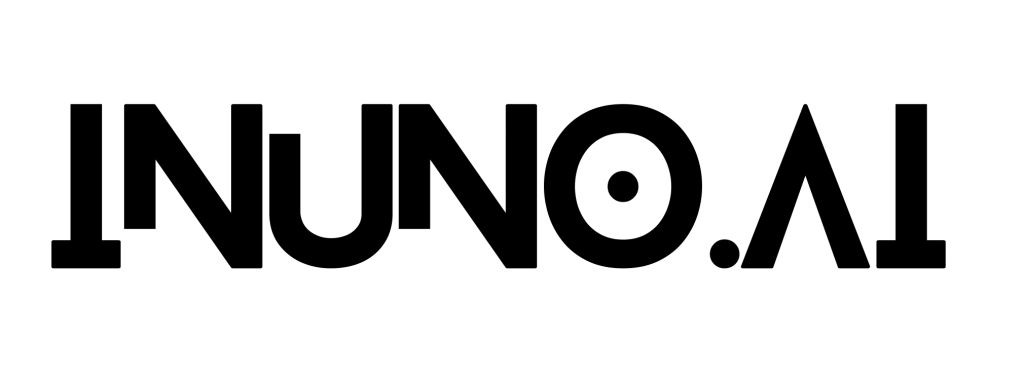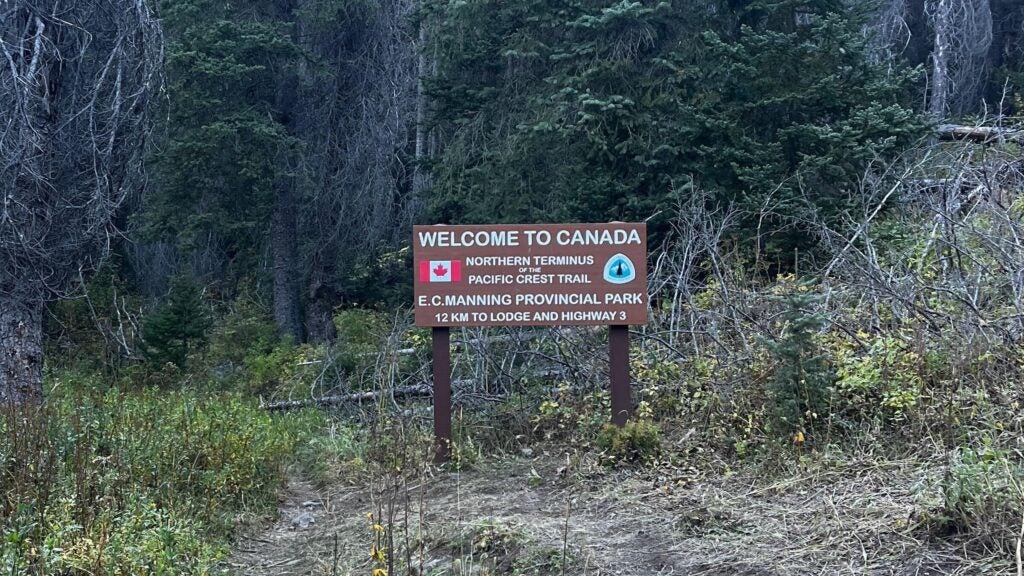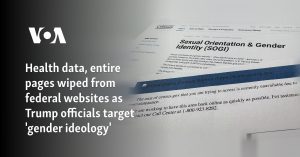Canada’s border authority expanded on its decision to bar Pacific Crest Trail hikers from crossing into the country earlier this week, noting that its new policy mirrors the United States’ refusal to permit southbound hikers to begin their hikes by crossing the border into American territory.
In a news release on Monday, the Canada Border Service Agency (CBSA) confirmed it would no longer issue permits for PCT hikers to cross into E.C. Manning Provincial Park at the trail’s northern terminus, and said that the change would “facilitate monitoring of compliance of trail users” as well as increase security at the border. In addition, the agency noted that the move “aligns with the U.S. Customs and Border Protection (CBP) who does not allow travellers to enter the U.S. from Canada on the trail.”
Northbound thru-hikers will now need to end their trips by backtracking to the nearest road crossing at Harts Pass, roughly 30 miles away; those who still wish to hike the extension of the trail into Canada will then need to travel to the nearest border crossings at Osoyoos or Abbotsford, both of which are roughly 60 straight-line miles from the trail.
In a blog post, the Pacific Crest Trail Association called the announcement “disappointing,” but acknowledged the CBSA’s points, including that the new policy mirrors one that the U.S. has long held.
“Hikers and equestrians should turn around after reaching the Northern Terminus,” the group wrote. “We ask that everyone travels with the utmost respect for nature by practicing gold standard Leave No Trace practices. This area will experience increased use now that more people are traveling this section of the PCT twice.”
The change comes at a tense time for U.S.-Canada relations, as the White House has vowed to institute a 25 percent tariff on imports from it and Mexico on February 1 if the two countries don’t take steps to deter unauthorized crossings. This week, the Royal Canadian Mounted Police unveiled a new fleet of leased Black Hawk helicopters that it is using to step up enforcement along the border.







